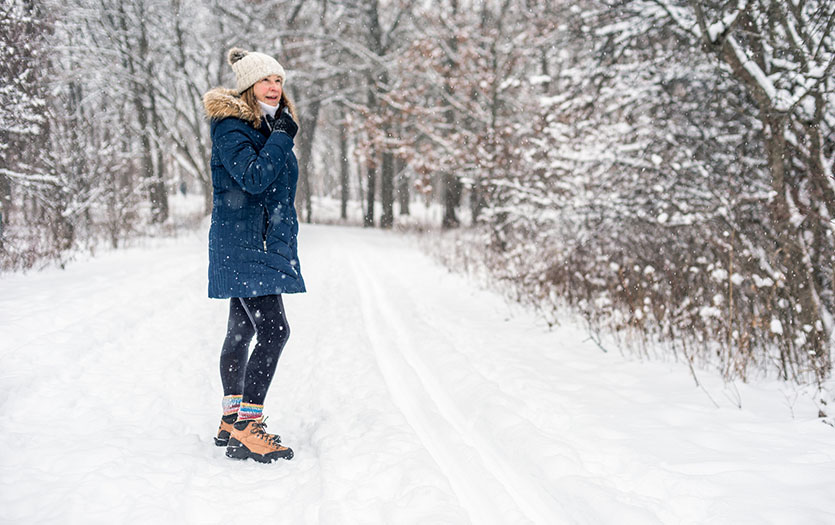
This post was written by Courtney L. Washington, PsyD, CSAYC, HSPP, Parkview Behavioral Health – Park Center.
For many of us, winter is a time of year that we grit and bear through. People who live down south often wonder aloud, “How can you deal with the cold and the dark?” But true northerners know there is a beauty that comes with the winter that is different than other seasons. There is something about the crisp air and the stillness of a cold winter’s eve that makes the stars more pronounced and vibrant. As we come into the holiday season, I am reminded of how modern-day pressures like the tiny magical elf that needs to move each night, an endless list of presents to buy and wrap, and a crammed social calendar have disconnected us from the true meaning of this time of year.
The traditional holiday season in American culture occurs in line with the winter solstice. This period denotes the earth's relationship to the sun—it’s the shortest day and longest night of the year. The winter solstice is the official start of winter.
The stresses of the winter holidays
Throughout history, cultures and religions have observed celebrations marking the winter solstice. Many of which are the roots of our familiar holiday season. In nature, this time of year focuses on alignment, rest and hibernation. As the solstice marks the end of the long winter nights and the new beginning that comes as the days begin to grow longer, this is a natural time to take stock of what has passed and refocus on what we would like for the days to come.
The consumerism of the holidays and other modern pressures encourage us to engage in avoidance and distraction during this time. Parties, shopping, overeating and consumption of alcohol support the belief that winter is hard and needs to be “survived.” As humans continue to evolve and live with more modern conveniences, we are becoming disconnected from nature and the natural rhythms of the world. These cultural expectations lead to chronic stress and impede our ability to focus on the natural meaning of the season, slowing down and reconnecting with ourselves, our loved ones and our values. This connection allows us to be rejuvenated and energized to tackle the growth that comes next.
The lack of sunlight and being disconnected in this way impacts daily routines including our sleep and our mood. Taking care of ourselves in these times feels challenging and yet it is essential. Focus on maintaining consistent routines of sleep, eating, exercise and joy. Remind yourself that we do not have to wait for “nice weather” to have adventures. Going outside and breathing in the brisk winter air (with proper precautions) is a wonderful way to reconnect with the world outside of ourselves. The feeling of a hard winter can be made lighter by shifting our mindset to caring for ourselves and reconnecting with nature.
Reconnect with yourself
Winter is a time of self-reflection. A time to gather around fires and tell stories that connect us to each other and ourselves. Those without those metaphorical “big fires” or large, extended families may feel lonely and isolated. For them, and for all of us, it is important to remember that we are interconnected to each other and to the natural world. Focusing on our interconnectedness offers a perspective shift that can help us reframe times of isolation and hopelessness.
Winter is a time to look at the year that has passed and begin to plan for the year ahead. A time to reflect on who you are and where you would like to go. This time of turning inward allows us to take in all the past year has given or taken from us, as the year comes to an end. Like nature, this time of hibernation is necessary for our tired brains and bodies to recover. So that with a new day, we can foster the hope of what is yet to come as the days get longer and we inch toward new growth.
The stillness of winter calls us to turn inward and sit with ourselves, as this is challenging, we use the chaos of the holiday to avoid what stirs inside of us. So, this winter solstice, I challenge you to shift your attention away from the distractions and focus on what you truly value. Some of the best self-care is to use this time of year as nature intended, to slow down, to reflect and to recharge for the new beginnings of a new year. This is the beauty of a still winter’s eve.
If you’re feeling down and in need of support this winter, Parkview is here. Call the PBHI HelpLine at 260-471-9440 or toll-free at 800-284-8439, anytime 24 hours a day. Our experienced specialists can answer your questions, provide recommendations and help arrange care, if needed.



